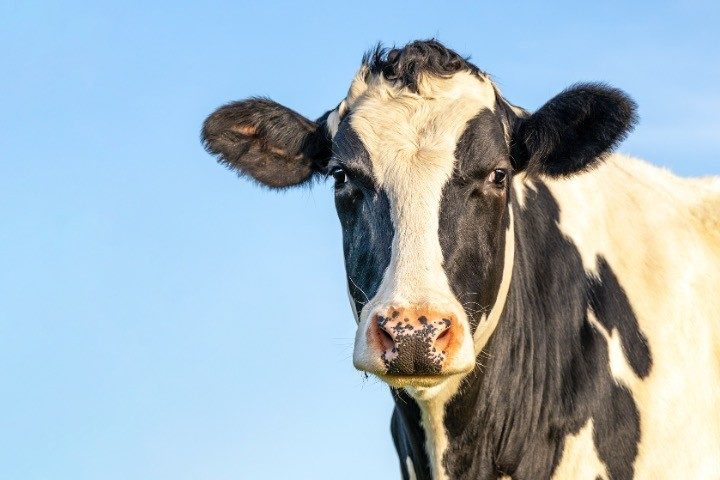
Dairy cattle in particular, and livestock in general, in the United Kingdom may soon be getting at least one new additive to their daily feed. Included in the government’s Net Zero Growth Plan released last week, part of the the country’s plan to address greenhouse gas emissions, which some scientists claim is the main contributing factor in global warming leading to unchecked climate change, agricultural livestock may soon be required to receive methane suppressants in their feed.
Climate fanatics claim that cow burping and flatulence are likely responsible for up to 14 percent of greenhouse gas emissions globally.
The U.K.’s Net Zero Growth Plan is looking to achieve carbon neutrality by 2050 at the latest. “We also anticipate entry of high efficacy methane suppressing products to the UK market from 2025 and will explore the role of industry and government to maximize uptake of such products for suitable cattle farm systems at pace, through a phased approach,” the plan explains.
The plan for bovine “Gas-X” will be phased in, however, to allow for greater cow safety as the new feed is rolled out.
In addition to degassing cattle, the Net Zero Growth Plan looks to “help” farmers in other ways — namely with increased regulation via the Environmental Improvement Plan (EIP).
“We are accelerating the roll-out of the Sustainable Farming Incentive (SFI) scheme in 2023 and confirmed the full range of future payable actions across the SFI and the Countryside Stewardship scheme,” the report states.
And although the U.K. supposedly left the EU in 2020, portions of its agricultural program relating to climate sound suspiciously like plans being implemented in The Netherlands and Slovenia.
“We also announced the opening of round two of the Landscape Recovery scheme which will focus on net zero, protected sites and habitat creation,” the U.K.’s plan states.
Dustin Benton, a former advisor on food strategy to the U.K. government, explained how the scheme to drug the United Kingdom’s cattle might play out.
“Most dairy cows are milked twice a day, and when they’re going to be milked they usually eat, so that’s a pretty good way of getting it into them,” said Benton.
As well as being a former advisor to the U.K. government, Benton is the policy director of the Green Alliance — a climate hysteric group. Benton called the methane suppressants a “good start,” but said that more action will be needed to reduce the carbon footprint of livestock.
One of the companies certain to benefit from the attempt to degas cows — DSM, which makes the feed additive Bovaer — explains the issue from their point of view: “Cows provide nutritious meat and dairy products that we thrive on today — full of the high-quality protein, micronutrients and essential fatty acids our bodies need. Cows also support the livelihood and food security of more than a billion people around the world.”
But…
However, cows generate methane, a greenhouse gas with consequences for our planet. Believe it or not, nearly 60% of emissions created globally during milk production come in the form of enteric methane, released into the atmosphere burp by burp. A single dairy cow can generate three tons of CO2 equivalent every year.
Among the ingredients in such additives are seaweed, organic acids, probiotics and antimicrobials, and essential oils. Are any of these things beneficial to livestock, besides possibly relieving their gas problem?
It’s not quite the craziest plan to cut down on methane emissions from cattle to come out of the United Kingdom. Recall that King Charles (then Prince Charles) championed an idea to place masks on cattle to catch the gaseous products of their digestion.
The new feed will not be cost-free to U.K. consumers — it’s estimated to add 33£ ($41) to the average consumer’s annual milk budget. Even worse, should the government decide it needs to subsidize the new feeds, consumers might see higher taxes, as well.
Meanwhile, the U.K. government has conceded that their brand new net-zero plan will only achieve 92 percent of their 2030 emissions goals.
“It is deeply troubling that, by its own admission, the government’s quantified plans don’t fully meet legal targets for reducing UK emissions, let alone the deeper cuts that Prime Minister Rishi Sunak promised at international climate talks just four months ago,” said Mike Childs of the climate fanatic group Friends of the Earth.




